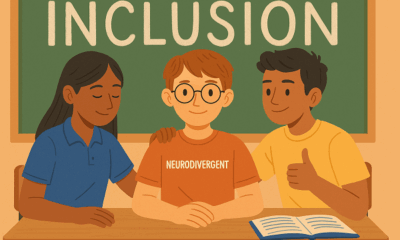Education
15 Questions With Lina Ashar & Dr. Swati Popat Vats on Preschool eLearning
Ms. Lina Ashar and Dr. Swati Popat Vats were the guests on a Webinar hosted by ScooNews regarding eLearning for preschoolers.

On 7th April 2020, a webinar was hosted by ScooNews in the wake of the COVID-19 lockdown and its impact on education, more specifically to address the effect it has on Early Childhood Education. We invited speakers Dr. Swati Popat Vats and Lina Ashar to discuss with us the issues faced by the pre-primary education system currently and the ways in which home-learning can be implemented to keep things smoother for the educators and the child in concern. The webinar was attended by more than 30,000 educationists from across India on Zoom, Facebook Live and YouTube Live.
Lina Ashar is an Indian Educationist, Entrepreneur, Writer, Founder of Kangaroo Kids International Preschool and Billabong International School.

Dr.Swati Popat Vats is the Founder/President of Early Childhood Association India, President Association Primary Education and Research, President Podar Education Network, Founder/Director Podar Jumbo Kids, National Representative World Forum Foundation, and Nursery Director Little Wonders UAE.
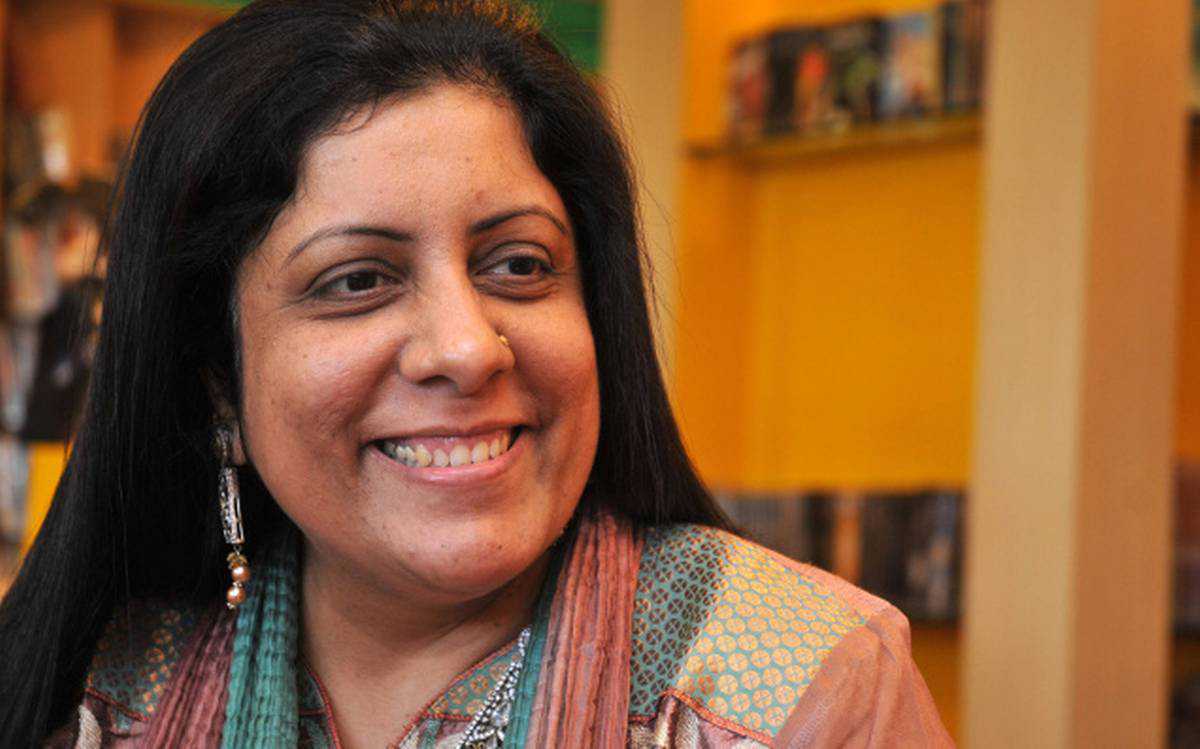
In the opening statement, Ms. Ashar talked about how technology is important and a necessity in the present and however much one is uncomfortable with the change it brings to the authentic teaching style, it is a requisite. We could either fear or take a leap forward toward this development. According to her, these are the times for collaboration and not competition.
On the other hand, Dr. Vats said she has a new meaning of IQ (intelligence quotient), where EQ+CQ +TQ+PQ = IQ.
She explained it by using the Early Childhood Care & Education or ECCE abbreviation and giving it a different meaning. EQ would stand for Emotional Quotient; CQ for Communicating/Change Quotient; TQ for Thinking Quotient and PQ for Play Quotient of the child. And together, these critical aspects form the IQ. Dr.Vats also added that though change is inconvenient, it is required of us to accept it in order to move forward.
Moving on to discussing some fairly important issues surrounding pre-school education, home-based learning, and helping the child focus on studies during the school closure, the two experts cleared the doubts popped by the educators listening to them Live. Excerpts below:
1. Simple ways to begin teaching online to the preschoolers for the first-time
Ms. Ashar:
- Give a very simple framework of what happens through the day
- Children need to feel connected
- Advise parents on how to reach a child’s emotional health
- Do not try to bring school at home rather it is home-based learning for the kids where the ideas are from school or educator
- Use Zoom, kids get excited when they come together
- The teacher goes through a period of interaction.
- Kids ask questions
2. On the study material required for the child each day
Dr. Vats:
- Do not overload kids with home-work. It must be formulated according to their age and capacity.
- Pre-school/nursery can try avoiding sending work. Instead, choose to send fun activities.
- For junior/senior classes, 1 worksheet a day is good enough
- Send more life skill-based activities like home chores, gardening, etc.
- It is more important to develop their language, motor, comprehension and cognitive skills than academic at this point
3. How to make online classes of pre-primary children interesting
Dr. Vats:
- Go to Facebook Live with all the students joining with their parents
- Have singing/rhyme sessions that they know
- Take simple storytelling session
- Once comfortable with the technical aspect, you could move on to apps like Zoom, Google Hangouts, etc.
- Once you list them the activities to do, discuss with them the next day so they know they have your attention
- Do not forget to tell them you miss them and to stay safe
4. How to discipline children online
Ms. Ashar:
- Do not take life so seriously right now
- Approach everything with love
- Do not tell kids they are wrong
- Form a sense of connection when you come online
- Emotional connection is more important than any content you could teach
5. On helping specially-abled children concentrate
Dr. Vats:
- Remember concentration cannot be forced on any child
- It comes with attachment and engagement
- Understanding the child is important, it helps in setting the tuning between you and the child
Ms. Ashar:
- One-on-one classes with special-needs children are better than teaching them with a group of kids
- It’s been found that children focus more digitally than when in a classroom
6. On securing more admissions after the lockdown is over
Ms. Ashar:
- Be empathetic of the circumstances
- Follow-up calls may not be well accepted as parents are busy with multiple things these days, especially with their work from home.
- Tell them it’s about contribution and collaboration and not capitalism
- Send them inspirational activities to do with kids at home to stay connected
Dr. Vats:
- This is not the time to push anyone for admissions or fees, take it slow
- More important point is to connect with the families of your students
- See a larger picture as educators which is – how to impact those already enrolled
- Your focus should be on making a larger impact by your sincere efforts
- If done properly, parents will see the difference and would want to join you in the future
7. On making digital classroom fun and creative for the preschoolers
Ms. Ashar:
- Some days you can have dance classes, exercise session, or even a no-fire cooking class with them
- Explore platforms like YouTube to see how educationists worldwide are reaching out to their students through creative activities
Dr. Vats:
- Yoga is one of the best things that adults, as well as children, can practice, try it
- ECA’s dance and exercise groups: FolkFitness & Swara Evening Sessions, become a member of these WhatsApp groups
8. On managing the screen-time and dealing with its dependency after the traditional classrooms will reinstate
Ms. Ashar:
- The key is to use technology in a way that it empowers as an educator, parent, and student
- It is our duty to show kids to use technology in the right way and not be dependent on it by equally focusing on other off-screen physical activities
Dr. Vats:
- Schools should add technology/digital literacy to the curriculum
- Do’s and Don'ts of usage of technology should be taught to children from a young age
- Do watch a video by BBC on Positive Impact of Screentime
9. On the right time to conduct online learning classes
Dr. Vats:
- When the child has slept well and had a full stomach and isn't cranky
- Be flexible
- Keep recorded sessions for children to watch later
- Take your call with the best judgement
Ms. Ashar:
- Do not make them come online as early as the school timings
- One can start at 11 am so the kids are fresh and can focus better
10. On ensuring if the parents are doing their best in home-schooling
Dr. Vats:
- Parent involvement is a must since it is ‘homeschooling’
- But regardless of that, we must understand how overwhelming this all could be for them
- Do not make them overwork
- Assure them that anything done now during this lockdown period will be visited again by the teachers when the schools reopen
- Flexibility is the mantra
11. Assigning homework-based learning
Dr. Vats:
- Please do not give ‘homework’ while homeschooling
- Quality learning of preschoolers is more important
Ms. Ashar:
- Prioritize the child’s emotional and mental health than his/her academics right now
- To help children stay emotionally stable, it is important for educators and parents to be emotionally stable themselves. Help them achieve that state.
- Be flexible
- Learning the impact of children doing chores is more important
12. On maintaining the classroom environment for teachers while taking online classes
Dr Vats:
- Print out quotes and pictures in your backgrounds
- Use different backgrounds to have a change of scene
- Bring some diversity in the way the children see you
- Remind them of the happy times and memories of their school/classroom
Ms. Ashar:
- It is important for kids to realise how real you are
- Showing them your home, your smiling face will make a lot of difference
13. Addressing internet connectivity difficulties
Ms. Ashar:
- If there is a bandwidth issue, you could record sessions and send
- We have sent out instructional designs at Kangaroo Kids about an app that allows readers to check out the MI-based activities
- Allow kids to play with the learning app when the internet is not working properly or the parents are busy
- Priorly secure the links to the videos or powerpoints that you need as resources
Dr. Vats:
- At Podar Jumbo Kids, a mix of live sessions and links were already sent to the teachers
- Everything is uploaded on the portal that connects us with the parents
- Be ready with your Plan B in case the internet doesn’t work or the teacher in command is not available
14. Suggestions on the online courses/books/articles for teachers to go through
Ms. Ashar:
- It is important to take time to brush up your skills as educators and also recognize your personal interests
- There are a lot of online courses available and due to the lockdown, a majority of them have been rendered free of charge
Dr. Vats:
- Subscribe to educational magazines like ScooNews, they come up with excellent articles
- I also write frequently for Education World and BrainFeed Magazine, check them out sometime
- Books like Totto-Chan are available for no-charge these days, read them
- Divasvapna by Gijubhai is one of the must-reads for all teachers
- Early Childhood Association have online courses available to enhance your knowledge in the field
- Podar International is also starting 2 courses, Nature Kindergarten & A Leadership Program. Join them!
15. On developing the connection with the Nursery kids if they have never seen the teacher before
Ms. Ashar:
- It is actually the perfect time to connect with them one-to-one
- Kids are feeling more at ease and hence, the connection will happen rather quickly and effortlessly
- Since the child does not have to settle in a new environment and have no separation anxiety, making them comfortable with the educator's face right now is a good idea
Dr. Vats:
- It is a transition of the child from parents to teachers
- Send something for parents to tell their kids about the educator
- Basic information with a few personal touches like a favourite colour or flower can truly help
- Parents can help introduce the educators with the child and explain to the child how the school will come to home via the online screen
At the end of the session, both the pioneering educationists shared a word of motivation for the thousands of educators listening to them.
Ms. Ashar:
- If you want to touch the past, touch a rock. If you want to touch the present, touch a flower. But if you want to touch and impact the future of the world, connect with a child.
Dr. Vats:
- When I see teachers struggling, I tell them the story of Thomas The Engine
- There is a phrase that says “I can, I can, I can.” Keep it close to your heart.
- Childhood stories are a great source of inspiration. Some of my favourites are Snoopy, Garfield, Winnie The Pooh
- It is important to learn the art of self-motivation
If you could not catch our webinar Live, find the recorded feed on our Facebook page here https://www.facebook.com/scoonews/videos/601918420667127/
For those who want to join the Watsapp groups mentioned, it is suggested to go on Early Childhood Association India website and click on ‘Contact Us’ to ask your queries.
Education
AI to Become a Core Subject from Class 3: India’s Big Leap Toward a Future-Ready Generation

In a landmark move to make India’s school system future-ready, the Department of School Education & Literacy (DoSE&L), Ministry of Education, has announced that Artificial Intelligence (AI) and Computational Thinking (CT) will be introduced as part of the school curriculum from Class 3 onwards, beginning in the academic year 2026–27.
The initiative marks a major step in preparing students for an AI-driven world, ensuring early exposure to technological literacy, ethics, and problem-solving. The curriculum, currently being developed through a consultative process with CBSE, NCERT, KVS, NVS, and States/UTs, will fall under the National Curriculum Framework for School Education (NCF-SE) 2023, in alignment with the National Education Policy (NEP) 2020.
A stakeholder consultation held on 29th October 2025 brought together education leaders, including Prof. Karthik Raman from IIT Madras, who heads the CBSE expert committee responsible for shaping the AI & CT curriculum. The focus is on designing a meaningful, inclusive framework that integrates AI not as an advanced elective but as a foundational skill — comparable to literacy and numeracy in importance.
Shri Sanjay Kumar, Secretary, DoSE&L, emphasised that AI education should be viewed as a universal skill closely linked to real-world applications. “Every child’s distinct potential is our priority. Policymakers must define minimum thresholds and evolve them with changing needs,” he said. He also stressed on teacher training as the backbone of successful implementation, with modules under NISHTHA, and resource materials being prepared by NCERT and CBSE.
The Ministry plans to release AI handbooks and digital resources by December 2025, followed by a grade-specific rollout supported by video-based learning materials and structured training.
By embedding AI education from the foundational years, India aims to nurture a generation that understands, creates, and applies technology ethically — transforming the vision of AI for Public Good into everyday classroom reality.
Education
Dharav Utsav to Celebrate Rajasthan’s Cultural Heritage and Local Talent

Education
How to Build Better Parent-Teacher Communication

Good communication between parents and teachers plays an important role in a child’s learning and confidence. When both stay connected, it helps students feel encouraged and understood. Still, it’s not always easy to keep that connection strong. Busy schedules and small misunderstandings can make things tricky. The good news is that a few simple habits can make a real difference. Let’s examine what parent-teacher communication truly entails and how both parties can collaborate more effectively.
What is Teacher and Parent Communication?
Teacher and parent communication is all about staying connected and working together for a child’s growth. It’s not just a one-time meeting or message but a continuous, two-way exchange of updates, ideas, and feedback. When teachers and families stay in touch regularly, it creates a strong support system that helps students do better both in and outside the classroom.
In simple terms, teachers share what’s happening at school, like:
- Homework and assignments
- Grades and test results
- Class activities and behavior updates
- Social and emotional progress
- Strengths and areas where a student might need extra help
At the same time, parents share what’s happening at home, such as:
- How the child feels about schoolwork
- Any challenges or changes they’ve noticed
- Questions or suggestions about learning support
When both sides keep the communication open, it builds trust and teamwork. Teachers understand students better, and parents feel more involved in their child’s education.
Tips for Smooth Parent-Teacher Communication
Talking to parents doesn’t have to feel formal or uncomfortable. In fact, the better your connection with them, the smoother your teaching journey becomes. Whether you’re reaching out for the first time or trying to keep the conversation going, here are some real-world ways to build trust and keep communication easy, clear, and helpful.
1. Begin with a Friendly Introduction
Right at the beginning of the academic year, take a moment to introduce yourself to parents. You can send a friendly email, a printed note, or even a short video message. Let them know who you are, what you’re excited about, and how they can reach you. This early step breaks the ice and helps parents feel welcome and included in their child’s learning journey. When you set a positive tone early, it makes future communication easier and more comfortable for everyone.
2. Communicate Often, Not Just When There’s a Problem
Don’t let communication only happen during parent-teacher conferences or when something goes wrong. Send regular updates about what’s happening in class, upcoming events, or even small successes their child has had during the week. These don’t need to be long messages. A quick note about a student’s progress or behavior can make a parent’s day and help build trust over time. It also shows that you’re not just reaching out when there’s a problem.
3. Invite Their Voice, Too
Sometimes we forget that parents know their child better than anyone else. Ask questions. How does their child learn best at home? Are there any routines or challenges you should know about? And when they speak, listen fully. These conversations often reveal things that can shape how you teach and connect with the student.
4. Be Available and Approachable
Parents need to know that they can come to you when something is on their mind. That doesn’t mean being available 24/7, but it does mean creating space for honest conversations. You can let them know about your preferred times for calls or meetings, and also offer virtual options if in-person isn’t possible. Make sure the tone of your communication is always warm and non-judgmental so they feel safe speaking up.
5. Treat Parents as Team Members, Not Outsiders
Instead of just delivering information, try to involve parents as partners in their child’s learning. Share ideas for how they can help at home, ask for their observations, and thank them for their efforts. If there’s a behaviour issue or academic challenge, work with them on solutions instead of just reporting the problem. A strong home-school partnership creates a consistent support system for the student, both inside and outside the classroom.
6. Show Cultural Awareness and Respect
Families come from many different backgrounds, and their expectations may vary. Take the time to learn about their culture, language preferences, and family structure. Avoid making assumptions or using language that might feel exclusive. If needed, provide translations or simplify your communication to make sure everyone understands. This small effort shows parents that you value who they are and where they come from.
7. Share Progress in a Way That’s Clear and Supportive
Progress updates should be balanced. Yes, it’s important to point out what’s not working, but don’t forget to highlight what is. Give specific examples instead of vague praise or criticism. Say things like, “I’ve noticed Priya really lights up during science experiments,” or “Rohan is still working on staying focused during group tasks.” This kind of feedback feels personal and helps parents understand the full picture.
8. Choose the Right Tools for the Right Message
Too many apps or tools can overwhelm parents quickly. Choose one or two that you’ll stick to, whether it’s a school app, WhatsApp group, or weekly email. Use them for quick updates, reminders, or sharing student wins. Keep your tone casual but clear. Tech is helpful only when it makes life easier for both sides.
9. Respect Their Time and Yours
Teachers and parents are both juggling busy schedules. Respecting each other’s time helps keep communication productive and stress-free. If you’re scheduling meetings, offer time slots that work for working parents, too. Keep conversations focused so that meetings don’t run longer than necessary. Also, set clear boundaries about when you’re available.
When Is Parent-Teacher Communication Most Important?
Parent-teacher communication matters most right at the start of preschool. That first day of preschool is a big moment for every child and their family. When teachers and parents talk openly from day one, it helps everyone feel more comfortable and sets up a strong partnership for the rest of the year.
Why It Matters on Day One
- The first day of preschool often brings a mix of excitement and nervousness for both kids and parents. Honest communication helps everyone feel a little more comfortable.
- Open communication lets teachers learn about each child’s background, interests, and any worries or comforts. This way, teachers can give more personalized care and support from the beginning.
- Early conversations help build a sense of trust between home and school, making the classroom feel like a safe and welcoming place for the child.
- When teachers share classroom routines and expectations with parents on the first day, it helps families get ready and feel involved in their child’s new experience.
- These early talks also give teachers helpful details, like which languages are spoken at home, special family traditions, or any recent changes in the child’s life. This helps teachers communicate better and offer the right kind of support.
By making communication a priority from the very first day, both teachers and parents can work together to help each child settle in smoothly and feel confident as they start their schooling journey. Building strong parent-teacher teamwork not only supports a child’s emotional well-being but also lays the foundation for long-term academic success.
Closing Thoughts
We hope these tips help make your conversations with parents smoother and more meaningful. Building that connection takes time, but small efforts can lead to strong partnerships.
This article is authored by-
Chitra Khanna,
Content Strategist,
KLAY Preschools & Daycare
Education
Beyond the Syllabus: School Teachers’ Insights on Project-Based Learning

How classroom experiences are being reshaped through projects, inquiry, and authentic learning
As the classroom grows beyond the boundaries of textbooks and blackboards, so too does the role of the teacher, and the very meaning of learning. Project-Based Learning (PBL), once considered a niche innovation, is increasingly being embraced by educators across schools in India. But what happens when PBL moves from theory to practice?
To answer this, we turned to the people at the heart of the learning experience: teachers.
In conversations with educators from diverse school contexts, one theme was clear: PBL is not just a teaching strategy; it’s a transformation in how students learn, engage, and grow.
From Worksheets to Real-World Work: How PBL Differs from Traditional Homework
One of the clearest contrasts teachers observed was how PBL moves learning from repetition to relevance. Traditional homework often reinforces information through rote exercises. PBL, by contrast, asks students to apply their knowledge to solve problems, create products, or investigate issues that matter to them.
One teacher shared how using PBL to raise student awareness about water pollution was a hit in the class. Instead of just assigning problems, the students were made to create awareness posters, conduct surveys in their neighbourhood, and suggest solutions through group presentations. The teacher also noted how the students took the lead, and had an ownership over this project that they usually don’t showcase.
The shift from repetition to application fosters deeper engagement. Several teachers noted that students who previously struggled to stay motivated with homework showed renewed interest when asked to take on real-world challenges.
Changing Roles: Teachers as Facilitators, Not Just Instructors
Project-Based Learning also changes the role of the teacher, who went from being the sole source of knowledge to a guide who supports inquiry and exploration.
One common change teachers noticed was on how they had to let go of control in the classroom. Naturally, the students now had to work on projects on their own, and could only come to the teacher for guidance and help. The teachers noted that they helped their students ask the right questions, find credible sources, and evaluate their work, instead of completely placing the burden of learning on the teacher themselves.
This change isn’t always easy. It requires a shift in mindset and in many cases, rethinking how time is used in class. But most teachers agree: the shift is worth it. PBL has encouraged interdisciplinary approaches, made space for collaborative learning, and created more meaningful student-teacher interactions.
Unlocking Student Potential: What PBL Offers Beyond Academics
Academic performance remains important, but a lot of teachers repeatedly pointed out that PBL nurtures a broader set of skills, like critical thinking, collaboration, communication, and creativity. One teacher particularly noted on how their quietest students became ‘leaders’, and became outspoken when it came to presenting their ideas and projects. While not directly, PBL helped these students find their voices, and find confidence in their effort and abilities.
Students learn to manage time, negotiate roles, and solve problems, skills that aren’t always reflected in exam scores but are vital for life beyond school. For many teachers, the most rewarding aspect of PBL was watching students take initiative, work through failure, and reflect on their learning.
Widening the Circle: Strategies for Scaling PBL in More Classrooms
While the benefits are clear, teachers acknowledged that implementing PBL at a large scale comes with challenges, like limited time, rigid curriculum structures, and unfamiliarity among teachers.
They offered a few practical suggestions for schools and educators considering wider adoption:
- Start Small and Build Confidence: Starting with short projects aligned to the unit you are already teaching introduces PBL in an easy manner. This way, teachers do not have to worry about overhauling their curriculum, or for making huge changes to their current teaching methods.
- Encourage Collaboration Among Teachers: Joint planning across subjects makes projects richer and more integrated. This also promotes interdisciplinary skills among students, and allows them to craft solutions using different subjects and skillsets.
- Make Time for Reflection: Embedding opportunities for students to present, critique, and reflect helps solidify learning. By reflecting on their projects and mistakes, they can understand how they can improve their approach to PBL.
- Support Professional Development: Teachers emphasized the need for ongoing training, not just one-off workshops but long-term spaces for peer sharing and mentorship. This continuous development would cement and solidify the methods and outcomes that will maximise using PBL for student benefits
Looking Ahead: Redefining Success in Education
PBL challenges traditional ideas of what learning looks like. It pushes students to move beyond memorization, and it challenges teachers to rethink their methods. But more than anything, it opens up the classroom to ideas, to communities, and to possibilities. No longer are students just preparing for exams, but also for the complex world outside school.
As educators continue to navigate the changing landscape of education, the insights from teachers point us toward a hopeful future, where learning is meaningful, relevant, and rooted in real-world experience.
This article is authored by Mrs. Padmashini M Patro, Principal, Air Force School Bamrauli
Education
Over 1 Lakh Single-Teacher Schools Educate 33 Lakh Students Across India: MoE Data

Education
Over 3 Lakh Schools Join Hands for India’s Largest-Ever Innovation Challenge: Viksit Bharat Buildathon 2025

In a historic moment for Indian education, more than 3 lakh schools across the country came together to participate in the Viksit Bharat Buildathon (VBB) 2025, the largest live school innovation challenge ever organised in India. The nationwide event was inaugurated in New Delhi by Union Education Minister Dharmendra Pradhan, marking a significant milestone in the Government’s efforts to embed creativity, innovation, and problem-solving into the school ecosystem.
The Viksit Bharat Buildathon, organised by the Department of School Education & Literacy (DoSEL) in collaboration with Atal Innovation Mission (AIM), NITI Aayog, and AICTE, saw over one crore students from Classes 6 to 12 working simultaneously during a 120-minute live innovation session. Students teamed up in groups of three to five to design prototypes and propose solutions under four themes — Atmanirbhar Bharat, Swadeshi, Vocal for Local, and Samriddhi.
While inaugurating the event, Minister Pradhan interacted virtually with students of PM SHRI Government High School, Khorda, Odisha, and later visited Delhi Public School, Mathura Road, and Kendriya Vidyalaya No. 2, Delhi Cantt. Commending students for their creativity, he said, “The vision of Viksit Bharat will be realised through the innovative spirit of our young learners. These ideas will not only address domestic challenges but also create global models for change.”
The event drew widespread participation, with Uttar Pradesh leading the numbers (78,206 schools), followed by Maharashtra (41,198), Gujarat (20,017), and Madhya Pradesh (18,129). Other states like Tamil Nadu (16,370), Bihar (15,732), Odisha (12,344), and Haryana (11,567) also recorded impressive engagement, showing the growing momentum for grassroots innovation across regions. Even smaller territories like Ladakh (358), Puducherry (149), and Andaman & Nicobar Islands (171) participated actively, reflecting the nationwide reach of the initiative.
According to Sanjay Kumar, Secretary, DoSEL, this unprecedented participation signals a transformation in how Indian students approach learning. “This one-of-a-kind movement strengthens innovative thinking and enhances the problem-solving capabilities of students across India,” he said. Deepak Bagla, Mission Director of AIM, called the initiative a “mass movement connecting schools in remote villages with those in metropolitan cities through innovation.”
A New Chapter for Indian Education
The Viksit Bharat Buildathon signifies more than just a hackathon — it reflects a systemic shift in Indian education towards experiential and innovation-led learning. As schools across the country engage in design thinking, tinkering, and collaboration, students are being equipped not just with knowledge, but with the mindset and skills needed to build a self-reliant India.
By nurturing creativity from an early age and fostering partnerships between schools, government bodies, and industry, the Buildathon is shaping a generation ready to contribute to the vision of Viksit Bharat 2047 — a developed, empowered, and innovation-driven India.
Education
17-year-old Innovator Designs Learning Tools for the Visually Impaired

At just 17, Singapore-based student Ameya Meattle is proving that age is no barrier to impact. What began as a small idea to make education more accessible has evolved into a mission that is transforming how visually impaired learners experience learning and skill development.
Ameya founded Earth First at the age of 14 — a social enterprise that helps visually impaired individuals “earn and learn” by creating sustainable, eco-friendly products. Working with eight NGOs across India and Singapore, the initiative has trained more than 100 visually impaired students and launched over 23 sustainable product lines, from tote bags and jute placemats to macramé planters. Each design is adapted to provide hands-on learning opportunities and help trainees gain confidence in both craft and enterprise.
Beyond social entrepreneurship, Ameya has focused deeply on education and technology. He led a Python programming course for 50 visually impaired students, designing custom training modules that made coding accessible through screen readers and tactile tools. By introducing technology as a viable career pathway, Ameya hopes to help students move from manual tasks to high-skill, digital opportunities.
His work also extends into assistive technology research. Under the mentorship of Dr. Pawan Sinha at MIT, Ameya developed a VR-based diagnostic game to assess visual acuity in children — turning the process into an interactive experience rather than a clinical test. The tool is being piloted at MIT’s Sinha Lab and with Project Prakash in India, helping doctors evaluate and track visual development before and after eye surgeries.
In addition, during his internship at the Assistech Lab at IIT Delhi, Ameya worked on designing tactile STEM teaching aids, such as accessible periodic tables and coding tutorials for visually impaired learners. His goal, he says, is not just to innovate but to make scientific learning inclusive and joyful for all.
Ameya’s work highlights how education, empathy, and innovation can intersect to create a more equitable future — one where technology serves not just progress, but people.
Education
Empowering Young People to Champion Neuro-Inclusion
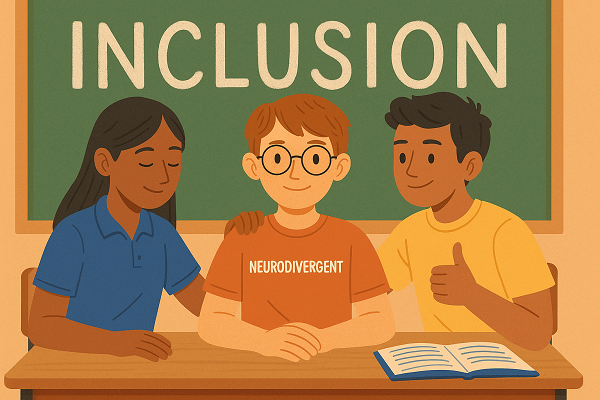
Aamir Khan’s recent film Sitaare Zameen Par has brought neurodiversity into the mainstream, and sparked important conversations about inclusion and rethinking what we consider ‘normal’. These cultural moments help raise awareness, but they also remind us that there is still a long way to go in making inclusion a lived reality.
It is estimated that 1 in 8 children in India have a neurodevelopmental condition such as ADHD, autism, learning disabilities and intellectual disability. Many of these children often face social isolation, bullying and exclusion – often the earliest of these experiences begin during school.
At the same time, today’s young people indeed carry with them a deep sense of social justice and openness to diversity. The energy, empathy and bold creativity of young people can be harnessed – if nurtured in the right way, at the right time – to make them equal partners in cultivating inclusive cultures in schools and communities.
We need young allies – people who are not only informed, but who engage meaningfully with neurodivergent peers, actively support the cause, and drive inclusivity. The key lies in equipping them with the knowledge, skills, and ultimately the mindset needed for inclusion. Schools must invest in nurturing young allies who can champion neurodiversity and take ownership of inclusion in spaces they belong to.
Our experience and work on youth allyship has shaped our understanding of what it takes to make this happen. Here are some of our most important insights:
- From awareness to active allyship: We need to move beyond awareness about neurodiversity, by equipping students with the knowledge, skills, confidence, and opportunities to take meaningful action as allies for neuro-inclusion.
- A personalised journey: Allyship is a lifelong journey which is most authentic when it grows organically from curiosity, dialogue, self-initiative and experiences. It cannot be imposed, and must be led by the individual.
- Student autonomy: When students have the autonomy to choose how they contribute, their commitment deepens. We should give students a mix of structure and freedom to help – guidance to shape their efforts, alongside the space to decide how they want to step up for meaningful change.
So how can schools nurture students as young allies?
- Create safe, relatable spaces led by students, for students Peer-led conversations give students space to reflect on diversity, challenge stereotypes, and share personal experiences. When peers lead, the power dynamics shift – students listen more openly, express without fear of judgment, and begin to see inclusion as something that belongs to them, not just a directive from authority figures. Our Inclusive Duniya Circles are one example of such spaces. Students are primed and empowered to sensitively facilitate conversations about disability, neurodiversity and inclusion.
- Explore connections to students’ interests and strengths
Students should be given the opportunity to discover how they feel about the cause and how they want to contribute. At the end of each Circle, we often ask, “How do you want to step up for an Inclusive Duniya?” The answers vary, but what matters most is that the initiative comes from the students themselves. Our role as adults and educators is to support them in making it happen.
Some take the route of advocacy – sparking conversations and campaigning for the cause with schoolmates. Others channel creativity through music, art, or theatre that challenges stereotypes.
For instance, the song Inclusive Duniya (available on Spotify), was written, composed and produced by students on their own from carefully crafting lyrics which invited listeners to imagine a world where everyone feels like they belong to picking melodies that convey warmth. Students used their creative talents to make a gentle but compelling call to action for allyship. Helping students tap into their personal strengths and interests enables authentic engagement and contribution to the cause.
- Embed into academic and co-curricular pathways
Linking students’ inclusion initiatives and projects to existing academic opportunities, such as CAS projects in the IB curriculum, allows them to merge personal passion with academic commitment. Framing these initiatives as co-curricular activities also strengthens students’ profiles for college applications. This dual recognition provides a formal recognition to their efforts and ensures students’ efforts are sustained – adding motivation, depth and commitment to their efforts.
The voices of young people not only impact their peers, but also have a ripple effect in shaping how families talk about disabilities, and, in due course, how communities and workplaces open themselves up to inclusion.
With the right support, our young generation can become a driving force for an inclusive world. Schools, as microcosms of society, provide the most conducive space for young people to explore sensitive concepts, question biases, and practice inclusion in meaningful ways. By nurturing young allies who truly value and celebrate diverse ways of thinking and being, we can lay the foundation for a more Inclusive Duniya.
This article is co-authored by:

Pooja Sharma, Founder and CEO, Inclusive Duniya

Srushti Patel, Manager- Schools Programme, Inclusive Duniya
Education
Ministry of Education Urges Schools to Adopt UPI for Digital Fee Payments, Promoting Ease of Schooling
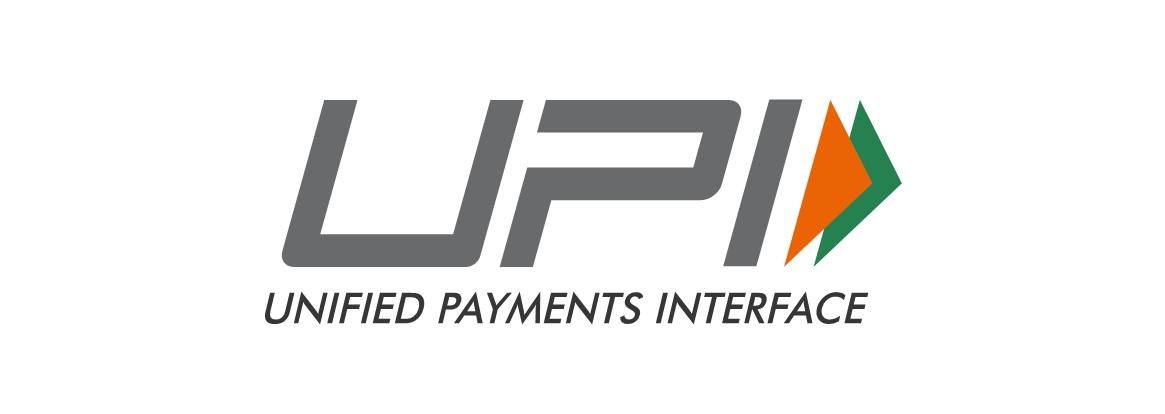
Education
Supreme Court Calls for Early Sex Education in Schools: “Not from Class IX, But from a Younger Age”

In a landmark observation, the Supreme Court of India has emphasised the urgent need to introduce sex education at a younger age, rather than waiting until Class IX as is the current norm. The apex court stated that children should be informed and sensitised about the physical and emotional changes that accompany puberty — and taught the necessary care and caution that come with it.
The observation came from a Bench comprising Justice Sanjay Kumar and Justice Alok Aradhe, which noted that the absence of early sex education leaves children vulnerable to misinformation and misunderstanding during their formative years.
“Sex education should be provided to children from a younger age and not Class IX onwards. It is for the authorities concerned to apply their mind and take corrective measures so that children are informed of the changes that happen after puberty,” the court stated.
The Bench made the remarks while hearing an appeal filed by a 15-year-old boy, who had been denied bail by the Allahabad High Court in a case under Sections 376 and 506 of the Indian Penal Code (IPC) and Section 6 of the Protection of Children from Sexual Offences (POCSO) Act. Recognising that the accused was himself a minor, the Supreme Court had earlier granted him bail in September 2025.
In the same case, the Court had directed the Government of Uttar Pradesh to submit an affidavit explaining how sex education is currently implemented in schools. The state responded that sex education is introduced only in Classes IX to XII, following NCERT guidelines. However, the Bench expressed concern over this delayed introduction and urged policymakers to revisit the framework to ensure children receive age-appropriate education much earlier.
The Court set aside the High Court’s order and made the juvenile’s bail permanent until the completion of the trial. More importantly, its remarks have reignited the national debate on the need for comprehensive sexuality education in India, which many experts argue is crucial to preventing abuse, reducing stigma, and promoting healthy development among adolescents.
Education experts have long maintained that early, factual, and inclusive discussions about puberty, consent, and emotional health must begin before adolescence — ideally in primary school — to prepare children for real-world experiences and relationships. The Supreme Court’s observation is expected to prompt renewed policy discussions on revising the sex education curriculum nationwide.
-

 Education3 months ago
Education3 months agoSupreme Court Calls for Early Sex Education in Schools: “Not from Class IX, But from a Younger Age”
-
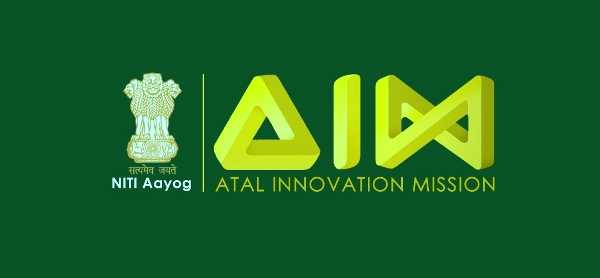
 Education3 months ago
Education3 months agoAtal Innovation Mission and IFCCI Join Hands to Scale Up Atal Tinkering Labs Across India
-

 Education3 months ago
Education3 months agoBeyond the Syllabus: School Teachers’ Insights on Project-Based Learning
-

 Education2 months ago
Education2 months agoDharav Utsav to Celebrate Rajasthan’s Cultural Heritage and Local Talent
-

 Education3 months ago
Education3 months agoDelhi Government Launches Online First Aid Training Programme for Teachers
-

 Education3 months ago
Education3 months ago17-year-old Innovator Designs Learning Tools for the Visually Impaired
-
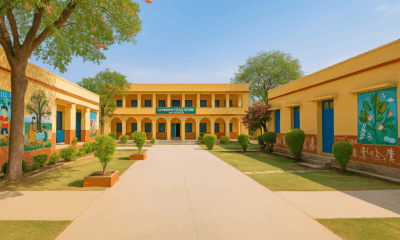
 Education3 months ago
Education3 months agoMinistry of Education to Promote Clean and Vibrant School Environments
-

 Education3 months ago
Education3 months agoNCERT Introduces ‘Swadeshi Module’ to Foster Self-Reliance and Indian Values in Schools
-

 Education2 months ago
Education2 months agoAI to Become a Core Subject from Class 3: India’s Big Leap Toward a Future-Ready Generation
-

 Education3 months ago
Education3 months agoOver 3 Lakh Schools Join Hands for India’s Largest-Ever Innovation Challenge: Viksit Bharat Buildathon 2025







